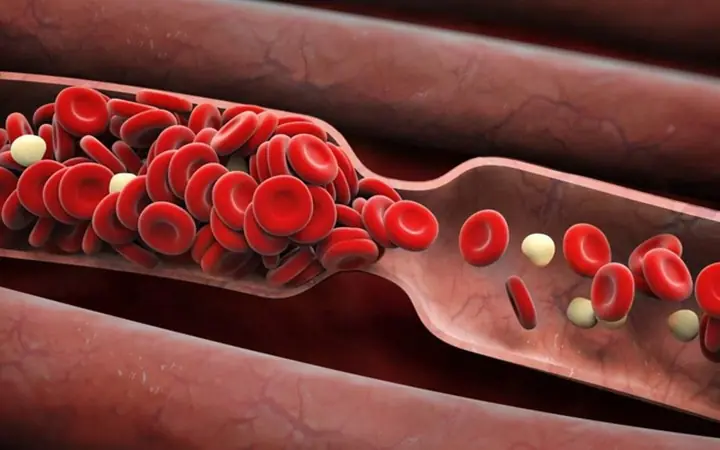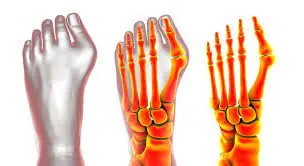
Walk Your Way to a Lower Cancer Risk: Just 7,000 Steps a Day Can Make a Difference
Walk Your Way to a Lower Cancer Risk: Just 7,000 Steps a Day Can Make a Difference
Good news for those looking for a simple way to boost their health: a significant study from the University of Oxford has linked walking at least 7,000 steps a day to a reduced risk of developing up to 13 different types of cancer. This large-scale research, highlighted by Science Alert, provides compelling evidence that consistent daily movement is a powerful tool in cancer prevention.

The Study: Steps Towards Cancer Prevention
Researchers tracked over 85,000 adults in the UK using wearable activity trackers, providing robust data on daily step counts and health outcomes. The findings were clear: participants who walked at least 7,000 steps daily had an 11 percent lower risk of developing cancer compared to those walking 5,000 steps. The benefits continued to grow as people increased their activity; reaching 9,000 daily steps was associated with an even greater 16 percent drop in cancer risk. While more steps are generally better, the study noted that the additional benefits began to level off beyond this point.
Crucially, the researchers emphasized that this reduced cancer risk was observed regardless of walking speed. This means that the key takeaway is simply moving more throughout the day, rather than needing to engage in high-intensity exercise.

Specific Cancers Targeted by Daily Walks
The study identified 13 specific types of cancer whose risk was lowered by regular walking:
-
Breast cancer
-
Colon cancer
-
Lung cancer
-
Liver cancer
-
Kidney cancer
-
Bladder cancer
-
Endometrial cancer
-
Gastric cancer
-
Rectal cancer
-
Head and neck cancers
-
Myeloma
-
Myeloid leukemia
-
Esophageal cancer
Every Step Counts: Beyond Just Walking
The Oxford study also underscored another vital point: replacing sedentary time with light or moderate physical activity further reduced cancer risk. This reinforces the idea that even small increases in daily movement can have a big impact on long-term health. Instead of sitting for extended periods, incorporating simple activities like standing more, taking short breaks to stretch, or choosing stairs over elevators can contribute to these protective effects.
These findings add to the growing body of evidence highlighting that regular physical activity is one of the most effective and accessible ways to prevent chronic diseases, including cancer. It's a powerful reminder that simple, consistent habits can lead to profound health benefits.
How many steps are you aiming for today?
News in the same category


The Main Cause of Blood Clots Discovered – 10 Times Worse Than Fat!

The Leading Cause of Liver Cancer Discovered – 10 Times Deadlier Than Alcohol and Tobacco: The Culprit is 'It

Unplug to Rewire: Just 72 Hours Without a Smartphone Can Change Your Brain

CRISPR Breakthrough: Scientists Successfully Remove Extra Chromosome in Down Syndrome Cells

Alzheimer's Breakthrough: Key Protein Found in High Levels in Newborns, Offering Hope for New Treatments

Trojan Horse Therapy: Scientists Engineer Virus to Make Tumors Self-Destruct

The Sunshine Vitamin's Secret Weapon: How Vitamin D Fights Colorectal Cancer

Woman, 29, Falls Into Coma After Tattoo During Bachelorette Trip To Spain

World’s Oldest Woman, 117, Reveals The One Food Behind Her Long Life

Medical Gold: Why Your Wisdom Teeth Might Hold the Key to Future Cures

Prostate Cancer: Warning Signs and Symptoms You Shouldn't Ignore

Ditch the Knife: Effective Non-Surgical Treatments for Bunion Pain Relief

5 Drinks That Can Help Dissolve Kidney Stones and Aid Easy Elimination

People with Cancer Often Share 8 Morning Signs—Especially Clear After Age 40

5 Foods That Tumors Hate: Eat These Often for Better Health

Scientists Warn of a Silent Epidemic: Men’s Testosterone Levels Are Plummeting — And Here’s Why

Scientists Found The Hidden Factor Behind the Global Infertility Crisis, And It’s Terrifying

🍵 The Quiet Power of Cinnamon Tea: A Simple Sip for Natural Balance
News Post

Scientists Reveal Genetic, Brain And Trauma Link Behind Hoarding Disorder

Most People Have No Idea What The Lines On Bath Towels Actually Mean

Why Charging Your Phone To 100% Could Be Harming Its Battery Life

FBI Declassified 1,427 Secret Files On Einstein—Internet Reacts

The Volume Buttons On Your Iphone Has Many Hidden Functions

If Your Tongue Is Yellow, Be Cautious of These 5 Diseases

The Main Cause of Blood Clots Discovered – 10 Times Worse Than Fat!

The Leading Cause of Liver Cancer Discovered – 10 Times Deadlier Than Alcohol and Tobacco: The Culprit is 'It

Here’s Why You Shouldn’t Sleep With A Fan At Night

If You See A Woman Wearing A Wedding Ring On Her Pinky Finger Here’s What It Means

What’s The Purpose Of The Fabric Strip Across Hotel Beds

Unplug to Rewire: Just 72 Hours Without a Smartphone Can Change Your Brain

CRISPR Breakthrough: Scientists Successfully Remove Extra Chromosome in Down Syndrome Cells

Alzheimer's Breakthrough: Key Protein Found in High Levels in Newborns, Offering Hope for New Treatments

Trojan Horse Therapy: Scientists Engineer Virus to Make Tumors Self-Destruct

The Sunshine Vitamin's Secret Weapon: How Vitamin D Fights Colorectal Cancer

Woman, 29, Falls Into Coma After Tattoo During Bachelorette Trip To Spain

Scientists Achieve First Dream-To-Dream Communication Using Brain Waves

How I Reclaimed My Life After My Husband’s Betrayal and Their Inevitable Divorce
After 14 years of marriage shattered by infidelity, I found strength to rebuild a new life for my children and myself. This is the story of betrayal, resilience, and how my ex-husband’s affair led to a painful but necessary divorce.